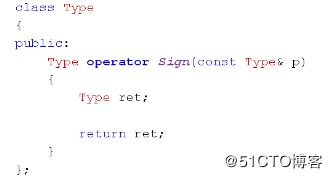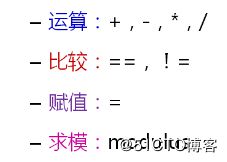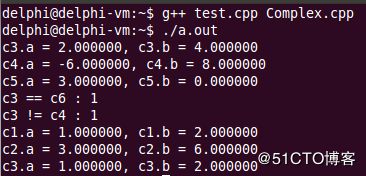前言这是一个重要的知识点,需要掌握。仔细体会代码。#include#include#includeusingnamespacestd;/*测试16进制表示*/intmain(){inta1=0xc0;coutbBin(b);coutCbin(c);intcnum=Cbin.to_ulong();cout<
ROS2 细节知识学习
儒雅芝士
ROS2系列机器人c++linux
1.rosidl_generate_interfaces()在ROS2中,rosidl_generate_interfaces是一个关键的构建工具功能。它主要用于从接口定义文件(如.msg消息文件、.srv服务文件和.action动作文件)生成不同编程语言(如C++、Python等)可以使用的接口代码。这些接口是ROS2中节点间通信的基础,确保了数据在不同组件之间能够准确、高效地传递。在构建系统中
C++实现链表
洗艾斯迪恩重度依赖
c++链表
1.单向静态链表constintN=10000;structnode{intid;intdata;intnextid;}nodes[N];nodes[0].nextid=1;//为next指针赋初值for(inti=1;i//定义链表listnode;//为链表赋值for(inti=1;i::iteratorit=node.begin();while(node.size()>1){it++;if(
分解质因数,求最大公约数和最小公倍数
2401_86161528
c++linux
3个c++程序分解质因数,求最大公约数和最小公倍数,方便数学计算1.分解质因数##includeusingnamespacestd;intmain(){while(1){longlongx,c=0,count=2;cout>x;cout=2){while((c!=0||countusingnamespacestd;longlonglcm(longlongx,longlongy);intmain()
python中@staticmethod方法
elie813
python基础
python中@staticmethod方法,类似于C++中的static,方便将外部函数集成到类体中,主要是可以在不实例化类的情况下直接访问该方法,如果你去掉staticmethod,在方法中加self也可以通过实例化访问方法也是可以集成。classTest:def__init__(self,num):self.num=num;defcout_num(self):print(self.num)@
C/C++教程 第十四章 —— MFC控件详解
余识-
C/C++实战入门到精通mfcc++c语言
注意本系列文章已升级、转移至我的自建站点中,本章原文为:MFC控件详解目录注意一、前言二、项目建立三、Comboxbox四、ListBox五、GroupBox六、Picturecontrol七、ScrollBar八、SpinControl九、ProgressControl十、hotkey十一、ListControl十二、TreeControl十三、TabControl一、前言通过前面两章的学习,现
C++——内存管理
kiiila
C++c++
目录1.c++内存分布2.c语言中动态内存管理3.c++动态内存管理4.operatornew和operatordelete函数5.new和delete的实现原理6.定位new表达式(了解)7.malloc/free和new/delete的区别8.什么是内存泄漏,内存泄漏的危害1.c++内存分布内核空间用户代码不能读写栈向下增长内存映射段文件映射、动态库、匿名映射堆向上增长数据段或静态区全局数据、
C++异常机制:构建健壮代码的艺术
Main. 24
c++开发语言
1.异常的概念及应用1.1.异常的概念异常处理机制允许程序中独⽴开发的部分能够在运⾏时就出现的问题进⾏通信并做出相应的处理,异常使得我们能够将问题的检测与解决问题的过程分开,程序的⼀部分负责检测问题的出现,然后解决问题的任务传递给程序的另⼀部分,检测环节⽆须知道问题的处理模块的所有细节。C语⾔主要通过错误码的形式处理错误,错误码本质就是对错误信息进⾏分类编号,拿到错误码以还要去查询错误信息,⽐较⿇
Python知识点:如何使用Panda3D进行3D游戏开发
杰哥在此
Python系列python3d开发语言编程面试
使用Panda3D进行3D游戏开发是一个相对复杂但功能强大的过程。Panda3D是一个基于Python和C++的开源引擎,专为3D游戏开发而设计。它支持物理、动画、着色器、碰撞检测等,能够制作高质量的3D游戏。以下是如何使用Panda3D进行3D游戏开发的基本步骤。1.安装Panda3D首先,你需要安装Panda3D。你可以使用以下命令安装:pipinstallpanda3d2.创建一个基本的Pa
「Py」基础语法篇 之 Python缩进规则
何曾参静谧
「Py」Python程序设计数据库
✨博客主页何曾参静谧的博客(✅关注、点赞、⭐收藏、转发)全部专栏(专栏会有变化,以最新发布为准)「Win」Windows程序设计「IDE」集成开发环境「UG/NX」BlockUI集合「C/C++」C/C++程序设计「DSA」数据结构与算法「UG/NX」NX二次开发「QT」QT5程序设计「File」数据文件格式「UG/NX」NX定制开发「Py」Python程序设计「Math」探秘数学世界「PK」Pa
C++vector容器的使用
jax不摆烂
C++入门到精通c++开发语言
目录一、C++中什么是vector容器二、vector的特点三、使用场景四、对vector容器的简单使用1、vector构造函数2、vector赋值操作3、vector容量与元素个数4、vector的插入和删除5、vector数据的存取6、vector容器互换7、预留空间一、C++中什么是vector容器在C++中,vector是一个非常常用的标准模板库(STL)容器,它提供了动态数组的功能。ve
C++随笔记录:区别()和{}创建对象
jax不摆烂
C++入门到精通算法
C++在C++11之前的初始化方式五花八门,所以C++11引入统一初始化语法。初始化值要用圆括号()或者花括号{}括起来,或者放到等号=的右边:不管是基本类型、数组还是复杂容器,都可以用花括号{}来初始化;int x(0); //使用圆括号初始化int y= 0; //使用"="初始化int z{ 0 }; //使用花括号初始化 这里的=运算符可能会让人产生
命令模式 - 命令模式的设计思想
w(゚Д゚)w吓洗宝宝了
C++从0到1命令模式c++
引言在软件开发中,设计模式是解决常见问题的经典解决方案。命令模式(CommandPattern)是行为型设计模式之一,它将请求封装为对象,从而使你可以用不同的请求对客户进行参数化,并且支持请求的排队、记录日志以及撤销操作。本文将详细介绍命令模式的设计思想,并通过C++代码示例帮助读者深入理解。命令模式的定义命令模式的核心思想是将一个请求封装为一个对象,从而使你可以用不同的请求对客户进行参数化。命令
华为OD机试2024年E卷-分苹果[100分]( Java | Python3 | C++ | C语言 | JsNode | Go )实现100%通过率
梅花C
华为OD题库华为od
题目描述A、B两个人把苹果分为两堆,A希望按照他的计算规则等分苹果Q,他的计算规则是按照二进制加法计算,并且不计算进位12+5=9(1100+0101=9),B的计算规则是十进制加法,包括正常进位,B希望在满足A的情况下获取苹果重量最多。输入苹果的数量和每个苹果重量,输出满足A的情况下B获取的苹果总重量。如果无法满足A的要求,输出-1。数据范围1<=总苹果数量<=200001<=每个苹果重量<=1
侯捷 C++ 课程学习笔记:开启 C++ 深度探索之旅
秃头小饼干
jvm开发语言c++
在C++的学习道路上,侯捷老师的课程宛如一座明亮的灯塔,为无数学习者照亮前行的方向。经过一段时间对侯捷C++课程的深入学习,我收获颇丰,在此将自己的学习笔记和感悟分享给大家,希望能对正在学习C++或者准备踏入C++领域的朋友们有所帮助。一、课程初印象初次接触侯捷老师的课程,就被其深入浅出的讲解风格所吸引。老师不仅有着深厚的技术功底,更具备出色的教学能力,能够将复杂的C++知识以通俗易懂的方式呈现出
ROS 实时修改动态参数的方法
jucat
ROS机器人自动驾驶linux
参考HokuyoLaser动态参数设置wikiipa覆盖算法源码背景工作中需要在C++程序运行过程中,根据场景开关costmap2d的障碍物感知图层以及膨胀图层。在yaml启动参数配置中加载障碍物层插件和膨胀层插件,但是关闭它们的更新,大概如下:global_costmap:global_frame:maprobot_base_frame:base_footprint...plugins:-{na
C++实现设计模式---职责链模式 (Chain of Responsibility)
计算机小混子
设计模式c++设计模式责任链模式
职责链模式(ChainofResponsibility)职责链模式是一种行为型设计模式,它允许多个对象都有机会处理请求,从而避免请求的发送者和接收者之间的耦合。这些对象通过形成一条链,沿着这条链传递请求,直到有对象处理它为止。意图通过将请求的发送者与接收者解耦,动态地决定由哪个对象来处理请求。使多个对象有机会处理请求,而不是由固定的对象处理。使用场景请求的处理者不确定:在运行时,可能需要多个对象来
华为OD机试E卷 --连续字母长度--24年OD统一考试(Java & JS & Python & C & C++)
飞码创造者
最新华为OD机试题库2024javapython华为odjavascriptc语言
文章目录题目描述输入描述输出描述用例题目解析JS算法源码Java算法源码python算法源码c算法源码c++算法源码题目描述给定一个字符串,只包含大写字母,求在包含同一字母的子串中,长度第k长的子串的长度,相同字母只取最长的那个子串。输入描述第一行有一个子串(1<长度<=100),只包含大写字母。第二行为k的值输出描述输出连续出现次数第k多的字母的次数。用例输入AAAAHHHBBCDHHHH3输出
jsonp 常用util方法
hw1287789687
jsonpjsonp常用方法jsonp callback
jsonp 常用java方法
(1)以jsonp的形式返回:函数名(json字符串)
/***
* 用于jsonp调用
* @param map : 用于构造json数据
* @param callback : 回调的javascript方法名
* @param filters : <code>SimpleBeanPropertyFilter theFilt
多线程场景
alafqq
多线程
0
能不能简单描述一下你在java web开发中需要用到多线程编程的场景?0
对多线程有些了解,但是不太清楚具体的应用场景,能简单说一下你遇到的多线程编程的场景吗?
Java多线程
2012年11月23日 15:41 Young9007 Young9007
4
0 0 4
Comment添加评论关注(2)
3个答案 按时间排序 按投票排序
0
0
最典型的如:
1、
Maven学习——修改Maven的本地仓库路径
Kai_Ge
maven
安装Maven后我们会在用户目录下发现.m2 文件夹。默认情况下,该文件夹下放置了Maven本地仓库.m2/repository。所有的Maven构件(artifact)都被存储到该仓库中,以方便重用。但是windows用户的操作系统都安装在C盘,把Maven仓库放到C盘是很危险的,为此我们需要修改Maven的本地仓库路径。
placeholder的浏览器兼容
120153216
placeholder
【前言】
自从html5引入placeholder后,问题就来了,
不支持html5的浏览器也先有这样的效果,
各种兼容,之前考虑,今天测试人员逮住不放,
想了个解决办法,看样子还行,记录一下。
【原理】
不使用placeholder,而是模拟placeholder的效果,
大概就是用focus和focusout效果。
【代码】
<scrip
debian_用iso文件创建本地apt源
2002wmj
Debian
1.将N个debian-506-amd64-DVD-N.iso存放于本地或其他媒介内,本例是放在本机/iso/目录下
2.创建N个挂载点目录
如下:
debian:~#mkdir –r /media/dvd1
debian:~#mkdir –r /media/dvd2
debian:~#mkdir –r /media/dvd3
….
debian:~#mkdir –r /media
SQLSERVER耗时最长的SQL
357029540
SQL Server
对于DBA来说,经常要知道存储过程的某些信息:
1. 执行了多少次
2. 执行的执行计划如何
3. 执行的平均读写如何
4. 执行平均需要多少时间
列名 &
com/genuitec/eclipse/j2eedt/core/J2EEProjectUtil
7454103
eclipse
今天eclipse突然报了com/genuitec/eclipse/j2eedt/core/J2EEProjectUtil 错误,并且工程文件打不开了,在网上找了一下资料,然后按照方法操作了一遍,好了,解决方法如下:
错误提示信息:
An error has occurred.See error log for more details.
Reason:
com/genuitec/
用正则删除文本中的html标签
adminjun
javahtml正则表达式去掉html标签
使用文本编辑器录入文章存入数据中的文本是HTML标签格式,由于业务需要对HTML标签进行去除只保留纯净的文本内容,于是乎Java实现自动过滤。
如下:
public static String Html2Text(String inputString) {
String htmlStr = inputString; // 含html标签的字符串
String textSt
嵌入式系统设计中常用总线和接口
aijuans
linux 基础
嵌入式系统设计中常用总线和接口
任何一个微处理器都要与一定数量的部件和外围设备连接,但如果将各部件和每一种外围设备都分别用一组线路与CPU直接连接,那么连线
Java函数调用方式——按值传递
ayaoxinchao
java按值传递对象基础数据类型
Java使用按值传递的函数调用方式,这往往使我感到迷惑。因为在基础数据类型和对象的传递上,我就会纠结于到底是按值传递,还是按引用传递。其实经过学习,Java在任何地方,都一直发挥着按值传递的本色。
首先,让我们看一看基础数据类型是如何按值传递的。
public static void main(String[] args) {
int a = 2;
ios音量线性下降
bewithme
ios音量
直接上代码吧
//second 几秒内下降为0
- (void)reduceVolume:(int)second {
KGVoicePlayer *player = [KGVoicePlayer defaultPlayer];
if (!_flag) {
_tempVolume = player.volume;
与其怨它不如爱它
bijian1013
选择理想职业规划
抱怨工作是年轻人的常态,但爱工作才是积极的心态,与其怨它不如爱它。
一般来说,在公司干了一两年后,不少年轻人容易产生怨言,除了具体的埋怨公司“扭门”,埋怨上司无能以外,也有许多人是因为根本不爱自已的那份工作,工作完全成了谋生的手段,跟自已的性格、专业、爱好都相差甚远。
一边时间不够用一边浪费时间
bingyingao
工作时间浪费
一方面感觉时间严重不够用,另一方面又在不停的浪费时间。
每一个周末,晚上熬夜看电影到凌晨一点,早上起不来一直睡到10点钟,10点钟起床,吃饭后玩手机到下午一点。
精神还是很差,下午像一直野鬼在城市里晃荡。
为何不尝试晚上10点钟就睡,早上7点就起,时间完全是一样的,把看电影的时间换到早上,精神好,气色好,一天好状态。
控制让自己周末早睡早起,你就成功了一半。
有多少个工作
【Scala八】Scala核心二:隐式转换
bit1129
scala
Implicits work like this: if you call a method on a Scala object, and the Scala compiler does not see a definition for that method in the class definition for that object, the compiler will try to con
sudoku slover in Haskell (2)
bookjovi
haskellsudoku
继续精简haskell版的sudoku程序,稍微改了一下,这次用了8行,同时性能也提高了很多,对每个空格的所有解不是通过尝试算出来的,而是直接得出。
board = [0,3,4,1,7,0,5,0,0,
0,6,0,0,0,8,3,0,1,
7,0,0,3,0,0,0,0,6,
5,0,0,6,4,0,8,0,7,
Java-Collections Framework学习与总结-HashSet和LinkedHashSet
BrokenDreams
linkedhashset
本篇总结一下两个常用的集合类HashSet和LinkedHashSet。
它们都实现了相同接口java.util.Set。Set表示一种元素无序且不可重复的集合;之前总结过的java.util.List表示一种元素可重复且有序
读《研磨设计模式》-代码笔记-备忘录模式-Memento
bylijinnan
java设计模式
声明: 本文只为方便我个人查阅和理解,详细的分析以及源代码请移步 原作者的博客http://chjavach.iteye.com/
import java.util.ArrayList;
import java.util.List;
/*
* 备忘录模式的功能是,在不破坏封装性的前提下,捕获一个对象的内部状态,并在对象之外保存这个状态,为以后的状态恢复作“备忘”
《RAW格式照片处理专业技法》笔记
cherishLC
PS
注意,这不是教程!仅记录楼主之前不太了解的
一、色彩(空间)管理
作者建议采用ProRGB(色域最广),但camera raw中设为ProRGB,而PS中则在ProRGB的基础上,将gamma值设为了1.8(更符合人眼)
注意:bridge、camera raw怎么设置显示、输出的颜色都是正确的(会读取文件内的颜色配置文件),但用PS输出jpg文件时,必须先用Edit->conv
使用 Git 下载 Spring 源码 编译 for Eclipse
crabdave
eclipse
使用 Git 下载 Spring 源码 编译 for Eclipse
1、安装gradle,下载 http://www.gradle.org/downloads
配置环境变量GRADLE_HOME,配置PATH %GRADLE_HOME%/bin,cmd,gradle -v
2、spring4 用jdk8 下载 https://jdk8.java.
mysql连接拒绝问题
daizj
mysql登录权限
mysql中在其它机器连接mysql服务器时报错问题汇总
一、[running]
[email protected]:~$mysql -uroot -h 192.168.9.108 -p //带-p参数,在下一步进行密码输入
Enter password: //无字符串输入
ERROR 1045 (28000): Access
Google 今天在 Chromium 官方博客宣布由于 H.264 编解码器并非开放标准,Chrome 将在几个月后正式停止对 H.264 视频解码的支持,全面采用开放的 WebM 和 Theora 格式。
Google 在博客上表示,自从 WebM 视频编解码器推出以后,在性能、厂商支持以及独立性方面已经取得了很大的进步,为了与 Chromium 现有支持的編解码器保持一致,Chrome
yii 获取控制器名 和方法名
dcj3sjt126com
yiiframework
1. 获取控制器名
在控制器中获取控制器名: $name = $this->getId();
在视图中获取控制器名: $name = Yii::app()->controller->id;
2. 获取动作名
在控制器beforeAction()回调函数中获取动作名: $name =
Android知识总结(二)
come_for_dream
android
明天要考试了,速速总结如下
1、Activity的启动模式
standard:每次调用Activity的时候都创建一个(可以有多个相同的实例,也允许多个相同Activity叠加。)
singleTop:可以有多个实例,但是不允许多个相同Activity叠加。即,如果Ac
高洛峰收徒第二期:寻找未来的“技术大牛” ——折腾一年,奖励20万元
gcq511120594
工作项目管理
高洛峰,兄弟连IT教育合伙人、猿代码创始人、PHP培训第一人、《细说PHP》作者、软件开发工程师、《IT峰播》主创人、PHP讲师的鼻祖!
首期现在的进程刚刚过半,徒弟们真的很棒,人品都没的说,团结互助,学习刻苦,工作认真积极,灵活上进。我几乎会把他们全部留下来,现在已有一多半安排了实际的工作,并取得了很好的成绩。等他们出徒之日,凭他们的能力一定能够拿到高薪,而且我还承诺过一个徒弟,当他拿到大学毕
linux expect
heipark
expect
1. 创建、编辑文件go.sh
#!/usr/bin/expect
spawn sudo su admin
expect "*password*" { send "13456\r\n" }
interact
2. 设置权限
chmod u+x go.sh 3.
Spring4.1新特性——静态资源处理增强
jinnianshilongnian
spring 4.1
目录
Spring4.1新特性——综述
Spring4.1新特性——Spring核心部分及其他
Spring4.1新特性——Spring缓存框架增强
Spring4.1新特性——异步调用和事件机制的异常处理
Spring4.1新特性——数据库集成测试脚本初始化
Spring4.1新特性——Spring MVC增强
Spring4.1新特性——页面自动化测试框架Spring MVC T
idea ubuntuxia 乱码
liyonghui160com
1.首先需要在windows字体目录下或者其它地方找到simsun.ttf 这个 字体文件。
2.在ubuntu 下可以执行下面操作安装该字体:
sudo mkdir /usr/share/fonts/truetype/simsun
sudo cp simsun.ttf /usr/share/fonts/truetype/simsun
fc-cache -f -v
改良程序的11技巧
pda158
技巧
有很多理由都能说明为什么我们应该写出清晰、可读性好的程序。最重要的一点,程序你只写一次,但以后会无数次的阅读。当你第二天回头来看你的代码 时,你就要开始阅读它了。当你把代码拿给其他人看时,他必须阅读你的代码。因此,在编写时多花一点时间,你会在阅读它时节省大量的时间。
让我们看一些基本的编程技巧:
尽量保持方法简短
永远永远不要把同一个变量用于多个不同的
300个涵盖IT各方面的免费资源(下)——工作与学习篇
shoothao
创业免费资源学习课程远程工作
工作与生产效率:
A. 背景声音
Noisli:背景噪音与颜色生成器。
Noizio:环境声均衡器。
Defonic:世界上任何的声响都可混合成美丽的旋律。
Designers.mx:设计者为设计者所准备的播放列表。
Coffitivity:这里的声音就像咖啡馆里放的一样。
B. 避免注意力分散
Self Co
深入浅出RPC
uule
rpc
深入浅出RPC-浅出篇
深入浅出RPC-深入篇
RPC
Remote Procedure Call Protocol
远程过程调用协议
它是一种通过网络从远程计算机程序上请求服务,而不需要了解底层网络技术的协议。RPC协议假定某些传输协议的存在,如TCP或UDP,为通信程序之间携带信息数据。在OSI网络通信模型中,RPC跨越了传输层和应用层。RPC使得开发






